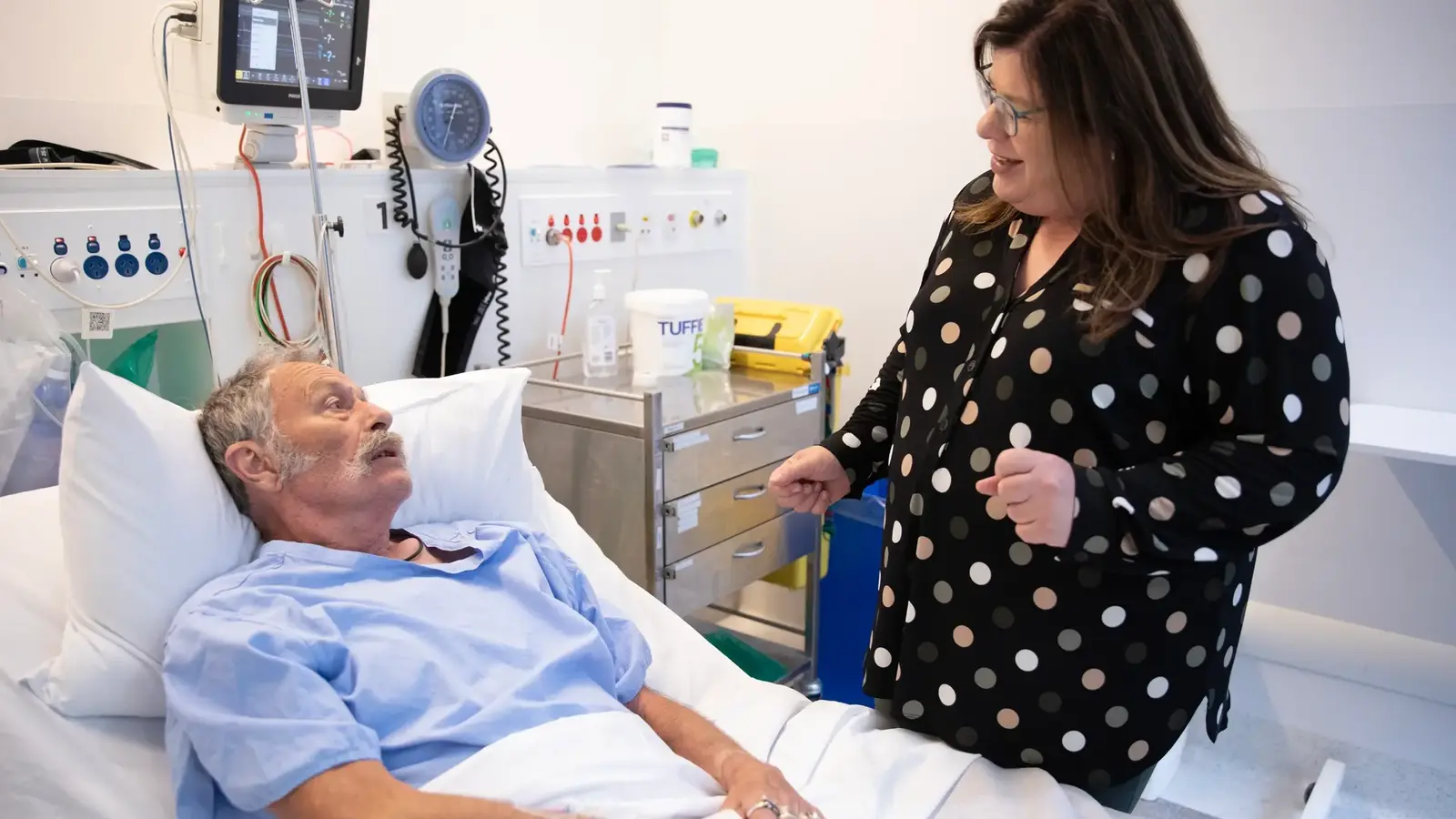ANZCA CTN thanks regional clinical trial participants

Regional patients participating in Australian-led international trials led by ANZCA's Clinical Trials Network (CTN) are being recognised at a Grampians Health event in Ballarat on Friday 16 May.
Grampians Health is one of 36 hospital and health networks across Australia, New Zealand, and Hong Kong participating in ANZCA's CTN ROCKet (Reduction of Chronic Post-surgical Pain with Ketamine) trial which is funded by the Australian National Health and Medical Research Council and the ANZCA Foundation.
The trial involves more than 4800 patients, including 560 at Grampians Health, undergoing abdominal, thoracic, or major orthopaedic surgery.
The Ballarat Base Hospital thankyou morning tea provides an opportunity for regional clinical trial participants from more than 100 clinical trials across Ballarat Base Hospital including the ANZCA CTN ROCKet and TRIGS (Tranexamic acid to reduce infection after gastrointestinal surgery) trials. They will hear about the impact of ongoing research, the vital role clinical trial participants play in advancing healthcare, and to connect with fellow participants and research staff.
It aims to coincide with International Clinical Trials Day which is held each year on 20 May to commemorate the first recorded clinical trial conducted by James Lind in 1747.
Grampians Health clinical trials coordinator Ms Natasha Brice will present an overview of the ROCKet trial and highlight the importance of having regional patients involved in clinical trials. Ballarat Hospital, for example, is the largest patient recruiting site in Australia for the ROCKet trial.
ROCKet trial lead investigator, anaesthetist Professor Philip Peyton, and his team are hoping to see a decrease in post-surgery chronic pain by administering ketamine to patients just before surgery and up to 72 hours post-operation.
Professor Peyton says Friday’s event is about acknowledging the contribution of participants, especially those in regional areas, to clinical trials such as ROCKet. The trial results will be published later this year.
“We want to thank participants for their contribution to medical research and the future of patient care. Their contribution to the ROCKet trial will help clinicians better understand and treat pain after surgery.”
By asking patients to report their experiences of pain at three and 12 months after surgery, the ROCKet study will assess the effectiveness of ketamine as a preventative therapy. The TRIGS trial is investigating tranexamic acid, a drug known to reduce bleeding in cardiac surgery, to determine if it reduces the risk of infection after surgery.




